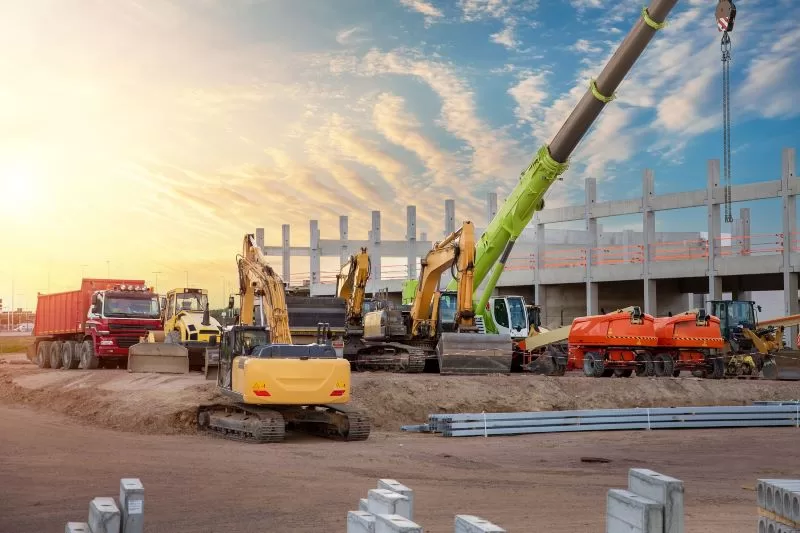When acquiring heavy equipment, businesses often face a crucial decision—whether to rent or lease the necessary machinery. Both options offer distinct advantages, but choosing the right one depends on various factors, including the company’s financial situation, the length of use, and the specific type of equipment required.
This article compares heavy equipment rental and leasing to help businesses make an informed decision, exploring the key benefits, drawbacks, and considerations of each option.
Understanding the Basics: Rental vs. Leasing
Before diving into the specifics, it’s essential to understand what distinguishes renting from leasing regarding heavy equipment. Here’ s what businesses need to know:
- Heavy Equipment Rental: Rental agreements typically offer short-term solutions for businesses needing limited equipment. Renting allows companies to access machinery for a specific project or season without committing to long-term ownership. The rental company also maintains responsibility for the equipment’s upkeep, insurance, and repairs, making this option highly convenient for businesses with temporary or fluctuating equipment needs.
- Heavy Equipment Leasing: Leasing, on the other hand, is a longer-term arrangement. Businesses agree to pay for the use of the equipment over an extended period, often with the option to purchase the machinery at the end of the lease. Leasing can give businesses ownership advantages without the upfront cost, as payments are spread over the lease term.
Moreover, having access to reliable heavy equipment is essential in industries like construction, mining, and agriculture. However, buying this machinery outright can be an expensive venture. That’s why many businesses turn to financing solutions such as renting or leasing.
Both options can help manage costs while ensuring access to the tools needed for successful operations. For example, for businesses in Canada or similar locations looking for options, they may want to consider applying for financement d’équipement lourd to gain detailed insights into equipment financing solutions.
Cost Considerations
Regarding cost, renting and leasing offer distinct financial structures catering to different business needs. These include:
Rental Costs
Renting can be more expensive on a per-day, or per-week basis compared to leasing. However, the flexibility it offers makes up for the higher daily rates. Companies only pay for the right equipment when they need it, making it an ideal option for short-term projects or seasonal work. Rentals also eliminate the need for long-term commitments, ensuring businesses avoid unnecessary expenses when equipment isn’t in use.
Leasing Costs
Leasing spreads the cost of the equipment over months or years, which can be more manageable for businesses that need the machinery for long-term projects. While leasing involves monthly payments, these tend to be lower than renting for the same period.
Additionally, many lease agreements allow businesses to purchase the equipment at the end of the lease, often at a reduced price. For companies with continuous equipment needs, leasing is typically the more cost-effective solution in the long run.
Flexibility
Flexibility is another significant factor to consider when deciding between renting and leasing heavy equipment. Each option offers varying degrees of adaptability depending on the business’s operational requirements. For instance, renting is the most flexible option for businesses with fluctuating equipment needs. Companies can rent specific machines for individual projects and return them once the job is completed.
Renting also allows businesses to access the latest models without committing to long-term ownership, enabling them to stay updated with industry advancements without the associated cost of purchasing new equipment.
On the other hand, leasing offers flexibility over a longer period. Companies that require equipment for several months or years will find leasing more accommodating than renting, as it allows them to use the same machinery for an extended duration without needing repeated rental agreements. Lastly, lease agreements often include maintenance packages, further reducing downtime and ensuring the equipment remains in optimal condition throughout the lease term.
Maintenance and Repairs
Another critical aspect to consider when choosing between renting and leasing is the responsibility for maintenance and repairs. This can impact operational efficiency and the overall cost of using heavy equipment. When renting, the rental company usually covers maintenance, insurance, and repairs. This ensures that businesses avoid the hassle and cost of servicing the equipment. In the event of a breakdown, the rental company typically provides a replacement machine, minimizing downtime.
On the other hand, leasing arrangements may vary regarding maintenance. In some cases, the leasing company provides maintenance and repair services as part of the agreement, while in others, businesses may need to handle upkeep themselves.
Therefore, companies must understand the terms of their lease to ensure they can manage maintenance costs effectively. The advantage of leasing is that businesses often receive well-maintained equipment at the start, reducing the likelihood of breakdowns early in the contract.
Ownership and Upgrades
While renting and leasing are both purchasing alternatives, they each offer different advantages regarding equipment ownership and access to upgrades. For example, renting allows businesses to access the latest equipment models whenever needed. This ensures that companies can always access the most advanced, efficient machinery without worrying about depreciation. For industries that rely on cutting-edge technology, renting can be a cost-effective way to stay current without significant financial outlay.
However, leasing offers the possibility of ownership at the end of the lease term. Many leases include an option to buy the equipment for a fraction of its original cost, allowing businesses to build up their assets without the upfront investment of purchasing new machinery. This is a major advantage for companies looking for long-term equipment solutions. However, leased equipment may not be as current as rented machinery, as businesses typically lease the same equipment for several years.
Final Thoughts
Ultimately, the choice between renting and leasing heavy equipment depends on your business’s specific needs and financial situation. By keeping the information mentioned above in mind, companies can make the best decision for their operations.


